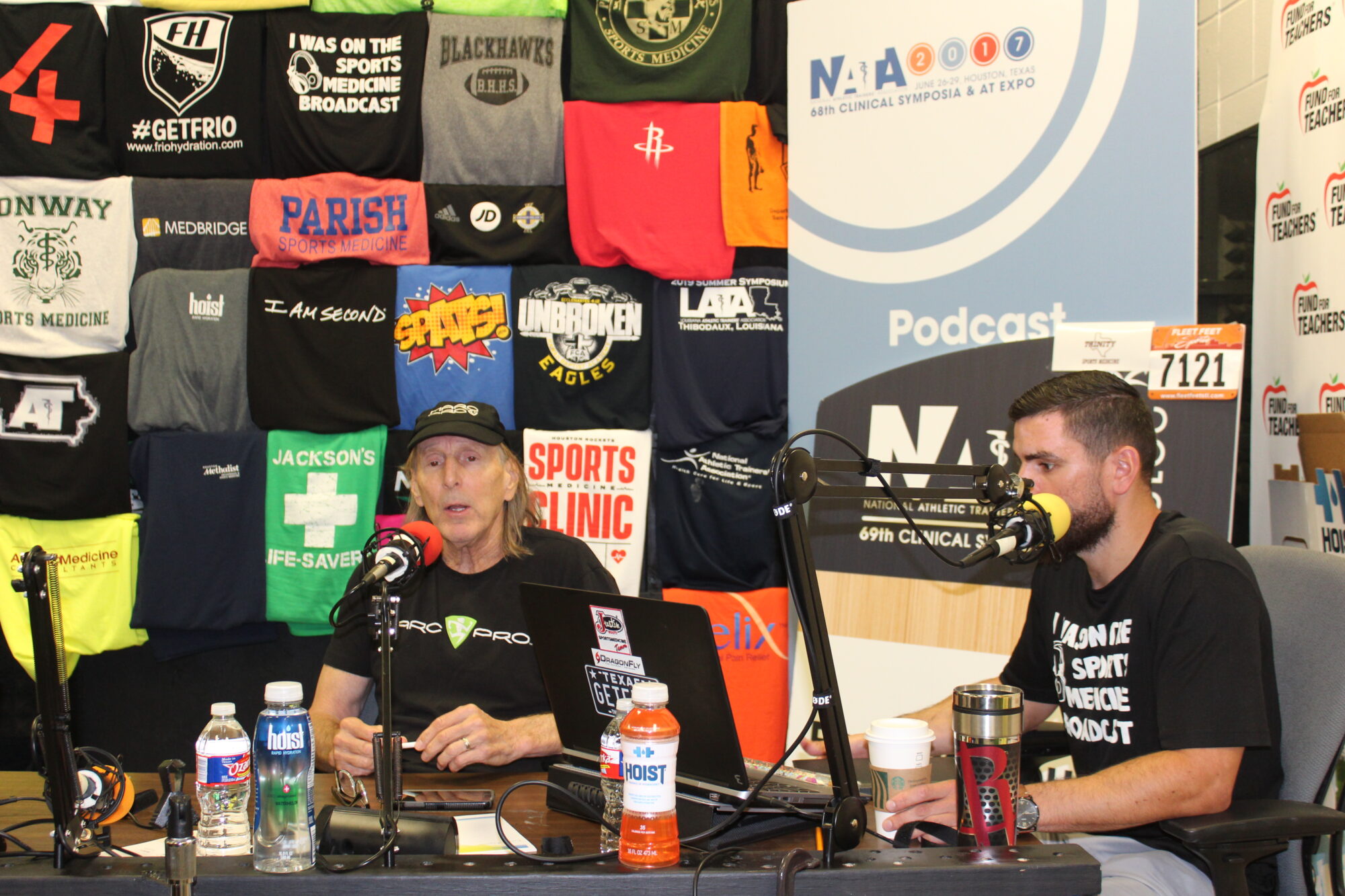Podcast: Play in new window | Download
Intermittent fasting and Ramadan tips are important considerations Athletic Trainers need to know about and be prepared to care for.
John Ciecko joins Registered Dietitians Kyla Cross and Melanie Battaglia to give some specifics and general considerations.
John has put together this letter for his coaches and athletes
Ramadan Tips for Diet
It has been widely recommended that athletes partake in multiple meals throughout the day in order to maintain the energy necessary to participate in athletic events. Most Muslims will automatically adjust their meal frequency to two meals in a 24 hour period, the Suhoor (early breakfast) which takes place at dawn and the Iftar which takes place just after sunset. The challenge is created as student-athletes find it more difficult to eat healthier meals as each Iftar is generally composed of meals that are high in fat, sugar, and salt. It should be noted that meals at both Iftar and Suhoor generally meet the daily caloric needs for student-athletes they may lack proper nutrients that are essential for optimal performance.
Since the daily caloric value is generally met by student-athletes it is important to pay particular attention to the macronutrients (fats, carbohydrates, and protein) consumed. It has been recommended that foods high in both fat and protein are consumed during Iftar and that foods high in carbohydrates and low in glycemic index are consumed during Suhoor in order to provide adequate fuel for the day.
Hydration
Lack of fluid intake throughout the day can create significant risks for those who participate in physical activity during Ramadan as most athletic events take place while Muslim student-athletes are fasting. A common occurrence for student-athletes is to ingest large quantities of fluids during hours of allowed fluid intake. This practice can prove ineffective as it will induce urine loss as well as disrupt sleep. It is recommended to drink water frequently in shorter intervals with solid foods during meals to aid in digestion and water retention. Another recommendation is to drink water with a marginal amount of salt and/or electrolytes prior to dawn to improve water retention and stores. Sugary and caffeinated drinks should also be avoided as they can cause further dehydration.
Sleep
Disruption in sleep will cause daytime fatigue and poor concentration. Coupled with a new fasting cycle, student-athletes may find it difficult to maintain a level of physical performance prior to Ramadan. Student-athletes are recommended to maintain a minimum of 8 to 9 hours of sleep a night. Since meals that break the fasts can often disrupt sleep cycles, student-athletes are encouraged to partake in naps in which they can obtain between 1.5 to 2 hours of sleep in the afternoon when able to in order to negate the effect of nocturnal sleep loss.
Considerations for Coaches and Medical Emergencies
Coaches and staff must always be aware of and sensitive to all student-athletes needs both religious and non-religious. It is important during this time that coaches routinely collect feedback from student-athletes but not to do so in a way that draws attention to a student who is practicing a religious observation. It is also important for the student-athlete to make the coaches aware of their practice, as fasting during Ramadan without knowledge can be misconstrued as a lack of effort or performance without the knowledge of these recommendations.
One consideration to keep in mind is the early days and weeks of a new fasting cycle, is the disruption of a student-athletes ability to self regulate their body temperature during activity without the use of fluids. Student-Athletes will have access to cooling towels during athletic events as well as small cooling tubs in the Athletic Training Room. Student-Athletes are able to rinse their mouths with water in an attempt to stave off thirst but in the event that a medical emergency is believed due to dehydration and/or increase in body temperature, it is allowed to give fluids to the student-athlete and activate the Emergency Action Plan. In any instance, regardless of religious views or practices, all student-athletes should be treated equally as to not draw attention to their needs.
Please inform booster families that student-athletes may attend, but will not be able to participate in pasta or pizza parties that take place during the season. In addition please inform banquet planning families to consider providing a take-home option during the postseason banquets. Even though there will be plenty of food for them at home, the notice and consideration will not go unnoticed by the student-athlete and their families.
Internet dropped so we have part one and part two on FB
Ramadan part two
Contact us
John – jciecko@bloomfield.org
Kyla Cross – kycross@umich.edu
Melanie Battaglia – melanie.battaglia@memorialhermann.org
Previous Ramadan Podcast
Ramadan and Athletic Health Care – 546

Check them out for good prices and great customer service – use THESMB
